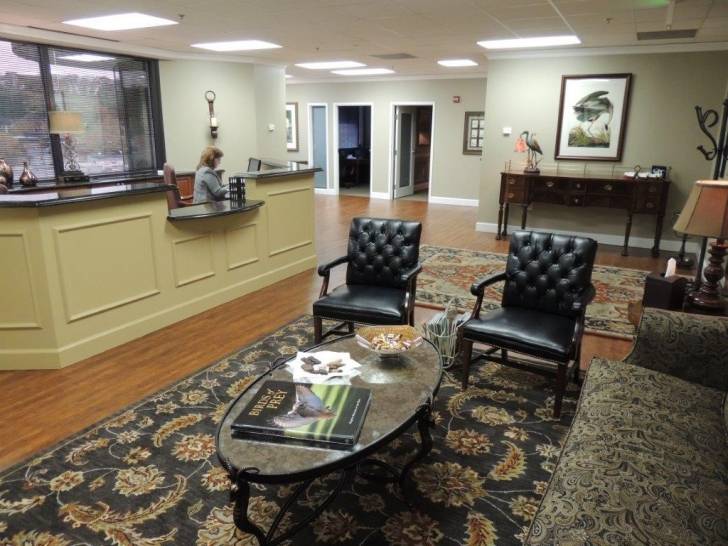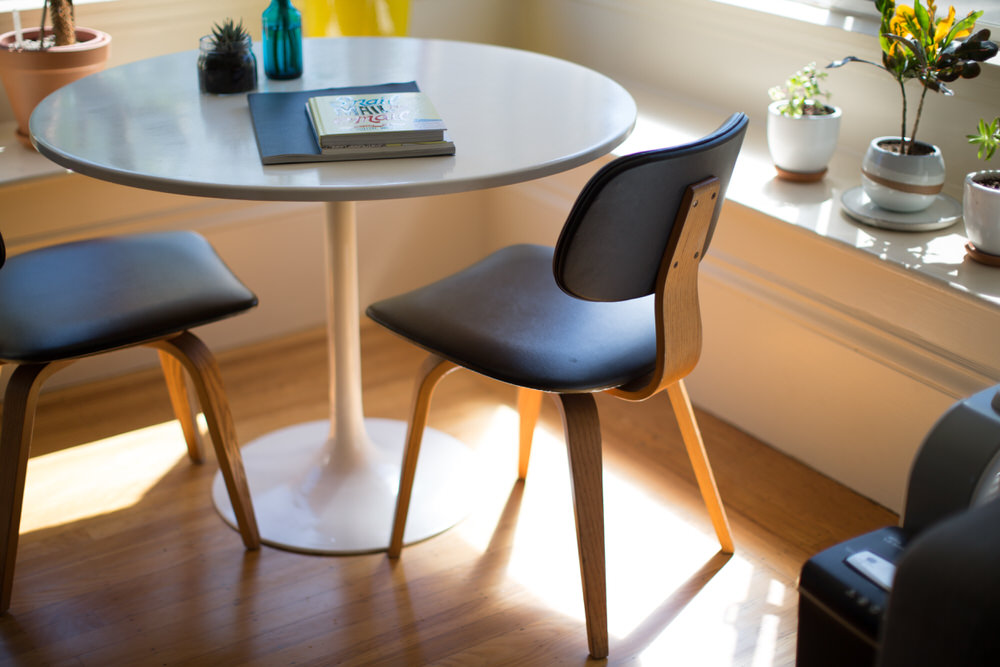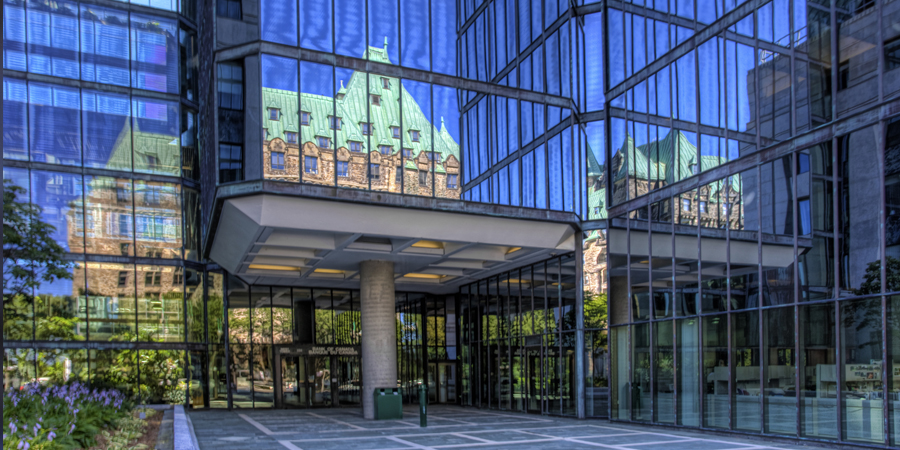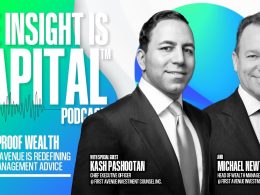Why Your Office Space Matters
by Commonwealth Financial Network
When I visit a firm for the first time, I always take a good look around. In general, I would classify my first impressions as generally neutral to positive. But every once in a while, there’s an office space that leaves me with an exceedingly positive (or negative) feeling.
It should be said that I’m not one who is overly influenced by aesthetics, and first impressions are subjective. Still, I do believe that your office space matters. It can separate you from the crowd and just may help turn that prospect into a client.
Let’s start with an example of a fictitious office to illustrate all of the worst characteristics that I’ve seen over the years:
At first glance, I notice that the office—a converted house—has no landscaping and a small gravel driveway. Upon opening the rusty door, things don’t get better: there’s a stained 1980s-style carpet to greet me, along with a white cat that immediately starts rubbing against my black pants. The makeshift reception area appears to be missing a receptionist, while the low ceiling, dingy beige walls, and various bric-a-brac create a sense of claustrophobia. It’s clear that the office’s vintage furniture has passed its expiration date, and water running in the bathroom and kitchen can be heard throughout the house. Once I’m finally greeted by a human, the walk to the conference room reveals more frayed rugs and dirty curtains, along with an unappealing rim of dust around the baseboards and furniture.
This isn’t a real place, but this scenario isn’t as unusual as you might think. Why? When the erosion of your office environment is gradual, it can be hard to see—and you may not realize the effect it can have on clients, prospects, and staff. But research shows that it takes just seven seconds to form a first impression, and a bad first impression can be extremely hard to change.
Now it’s time to consider the opposite end of the spectrum. Let’s take a look at two (real) firms that have taken their office space to the next level and used it to communicate their vision.
DeBoer Financial Group (Roseville, California). Jeffrey DeBoer, ChFC®, of DeBoer Financial Group, moved into his office in 2015 after extensive planning and design. It is one of several within a professional office park, although the one-story building looks more like a home in a residential area.
DeBoer and his team decided to name their space “The Experience,” a clear indication that their clients come first. Indeed, the firm’s clients are like family, so DeBoer wanted the office to feel both comfortable and classy. Review meetings, for example, are held in a den-like room with a leather upholstered sofa, chairs, and a coffee table, plus a monitor mounted above the fireplace where statements, financial plans, and reports can be presented. But it doesn’t stop there! The office space also provides an ideal spot to offer creative, intimate client events, such as an Iron Chef competition, which had the DeBoer team and clients donning aprons in the office café and dining room.
The new space has benefited the office staff as well. As DeBoer explains, “It is important for all of us to work together in an environment that we truly enjoy. It has made a world of difference to be able to work out in the gym, cook breakfast together as a team, or share a bottle of wine in the dining room—all without leaving the office.”
Financial Council, Inc. (Towson, Maryland). Another Commonwealth advisor who elevated his office space is Bill Leeb, CRPS®, CFP®, of Financial Council, Inc. Although Leeb’s firm had been in the same space for more than 30 years, Leeb questioned the value of taking on a daunting and expensive move. That’s when he met with a third-party consultant, who helped Leeb understand that his office was not in any way communicating the firm’s vision for clients: Plan Well, Retire Well, Live Well.
Leeb assembled a group of enthusiastic team members who created a wish list for the new space, including having the right technology in all the right places. They focused on how they wanted their clients to feel when they entered the space. From the floor plan to interior décor, the project quickly evolved into an exciting investment in the business’s future.
Financial Council moved into the new space in 2012, in the midst of Hurricane Sandy. Relocating after 30 years was undoubtedly hectic, but the payoff was worth it. The firm now has a calm environment that benefits both clients and employees. Once inside the glass doors, there is a sense of openness that continues from the extensive greenhouse glass of the reception area to the exterior of the building. But what did the clients have to say?

“Clients still haven’t stopped talking about how peaceful it is and how comfortable it makes them feel,” Leeb says. “It has also made a tremendous difference in the overall mood of our staff—and on me. Today, I can say with confidence that our office space communicates our vision: Plan Well, Retire Well, Live Well.”
What I hope you take away from these stories is that office space matters. To seize the office space opportunity, start by asking yourself the following questions:
- Do you need help evaluating your space? You might have trouble seeing what’s right in front of you. If so, enlist the help of an objective third party for an honest opinion.
- Will improving your space add value? If you’re planning to retire in five years, your office space may not be high on your list of priorities. But if your firm is built to last, using the office environment to support your firm’s vision is an opportunity you need to take.
- Is your office space clean? You take the utmost care with your clients’ financial future. A good cleaning service can help ensure that the environment reflects that same attention to detail.
- Does the space set the stage for exceptional service? Of course, a great space will never make up for terrible service. But it can set the stage for you and your staff to provide exceptional service.
- Does the environment appeal to younger clients? If you’re in this business for the long haul, it is likely that millennial clients will play a role in your firm’s success. Keep this group in mind as you evaluate your office space. As a recent InvestmentNews article pointed out, “private offices and cubicles are a thing of the past at modern firms.”
- What is your vision? Be sure to clarify your firm’s purpose and vision. Remember, your space can convey your vision only if you have one.
There’s no doubt that a positive environment can affect your clients, your employees, and you! I encourage you to take a step back and look at your office space. Do you like what you see?
Editor’s note: The original version of this article, “Does your office space matter?,” appeared on financial-planning.com on April 25, 2016.
Commonwealth Financial Network is the nation’s largest privately held independent broker/dealer-RIA. This post originally appeared on Commonwealth Independent Advisor, the firm’s corporate blog.
Copyright © Commonwealth Financial Network
















